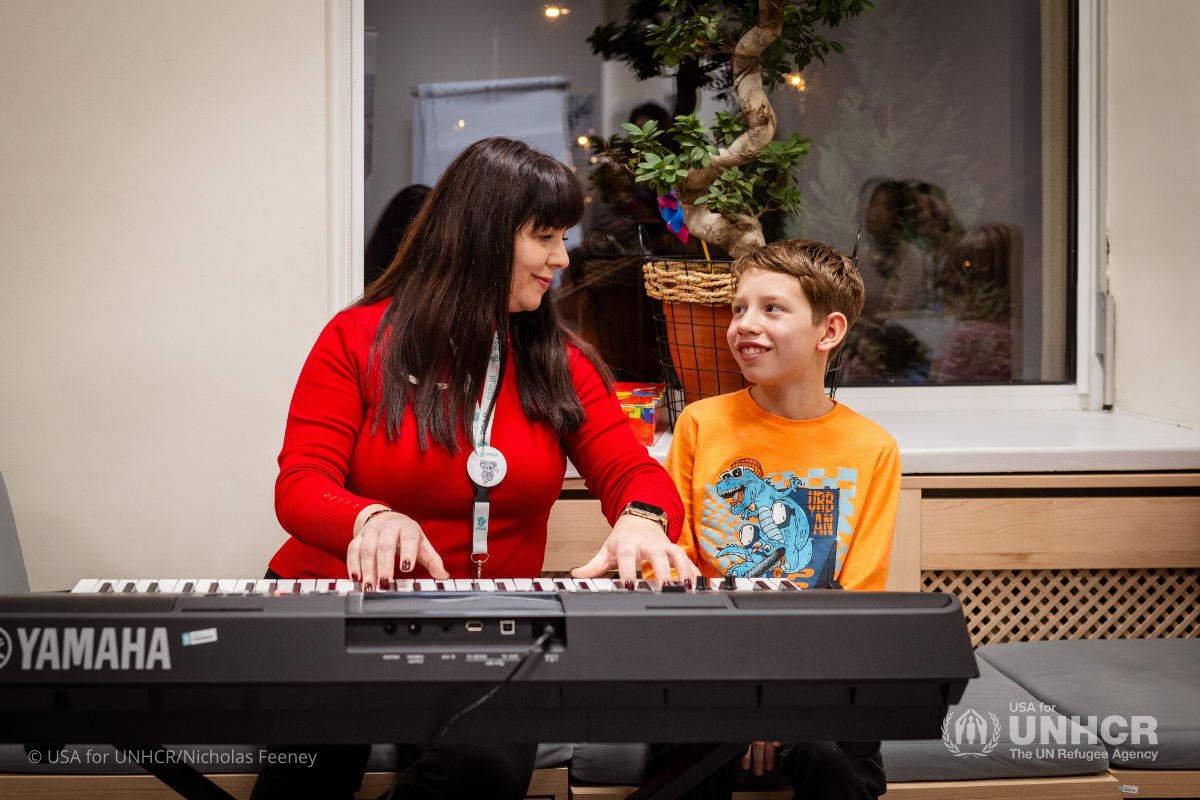The strength and resilience of women refugees
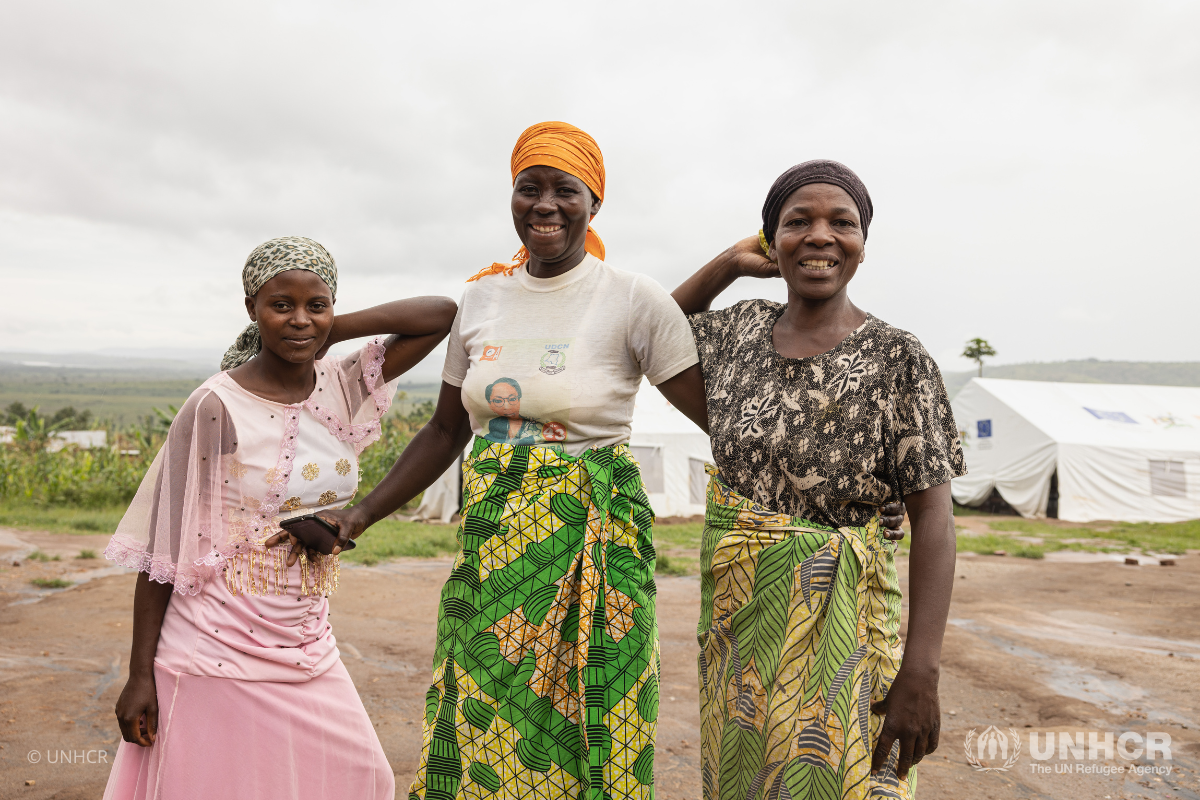
Time and again in my career — from my years working in reproductive health, to my more recent tenure as CEO of Malala Fund — the centrality of women’s wellbeing to the greater good has been a truth that stares me in the face. Unfortunately, so has our woefully inadequate investment in women’s wellbeing.
It’s as if no matter where I go, here we are: 50+% of the population, still disproportionately burdened with the weight of the world. How can women’s rights be so elusive, even as we are the marketing cause celebre of the past decade? Even as women world leaders have led with courage and resolve, only to step down from leadership with even more courage and resolve? Even while Rihanna literally owned the Super Bowl while pregnant, worth billions and “needing” this halftime show exponentially less than the network and the NFL needed her to legitimize their relevance?
How are we perpetually the underdog, the overlooked, the “we’ll get to you next” issue?
One way we can change this is to insist on lifting up each other’s stories. As I enter my third month as Executive Director and CEO of USA for UNHCR, one group of women whose stories I’d like to invite you to spend some time with are women refugees and their incredible stories:
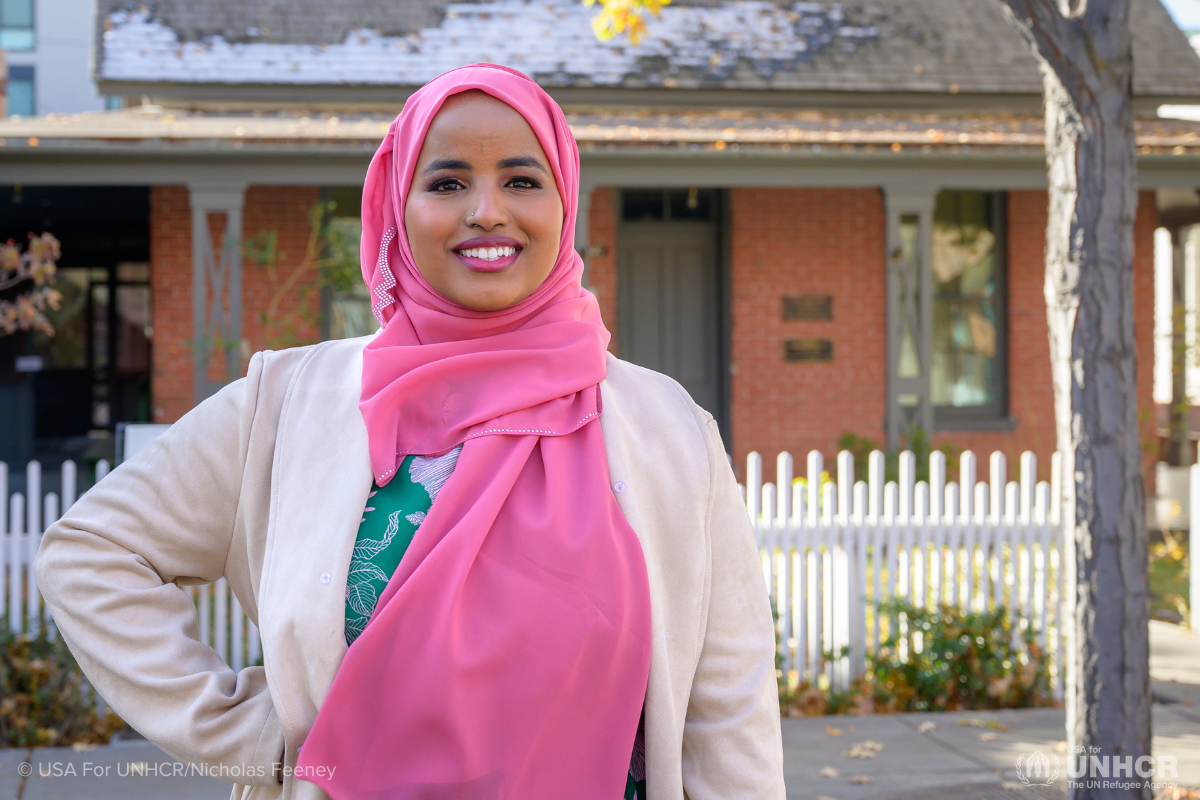
Halima Hamud was born in Somalia before being resettled with her family at a young age to a refugee camp in Kenya. There, she witnessed the strength of the women in her family, as her mother worked as a midwife while her sister worked in the camp’s medical clinics.
Then, in the 4th grade, Halima’s family was resettled to Boise, Idaho, where she struggled to fit in. “I used to hide many parts of myself, parts of my identity,” she shares, explaining that she hid the fact that she was Muslim, and stopped wearing her hijab.
While she was uncomfortable at school, at home the strong women in her family continued to support her, and in high school, Halima finally found community: “I saw people that looked like me, people that had the hijab on. And so, I put back on my hijab, and I think [that’s] when I started celebrating myself, when I started embracing my identity.”
Today, Halima is a Clinton Global Initiative Scholar, Truman Scholar and graduate student at the University of Minnesota, where she studies development practices, with a special interest in women’s economic empowerment in east Africa — the place her life’s journey began. She says, “I am determined to use my education to make a meaningful difference in the world.”
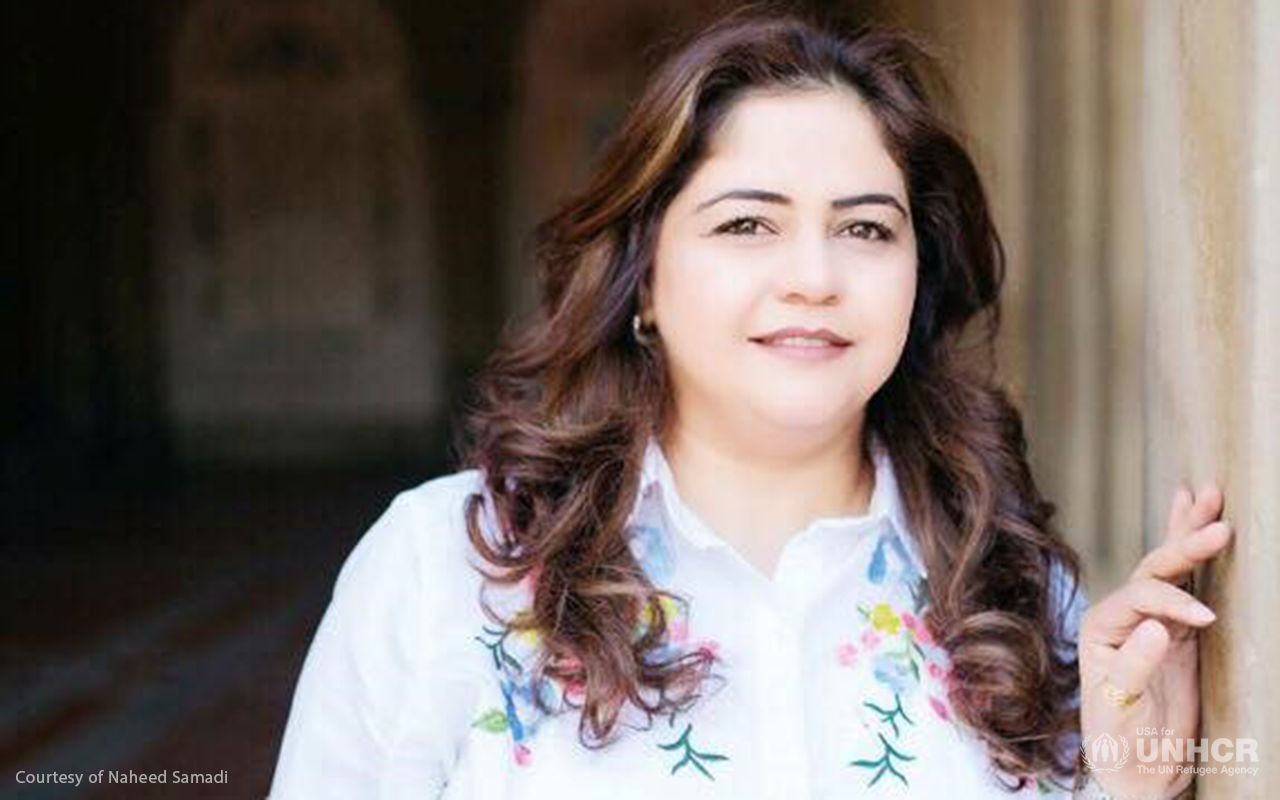
Naheed Samadi Bahram is a former refugee from Afghanistan who came to the U.S. in 2006 and is now the U.S. Country Director of Women for Afghan Women. “I was 10 years old when my mother was killed in a rocket explosion in Kabul during the civil war in 1990,” she says. “There were bombs everywhere, and our house was bombed.”
Naheed’s family moved from Afghanistan to Pakistan, where they were refugees for 15 years. During that time, “we had to walk miles from our school to home. Our classroom ...was not a proper room...The class was divided by cardboard, and you could easily listen to what the other class was learning at the same time.” Despite the odds, Naheed was able to complete her education, get into university and graduate. Still, she observes, “There is no degree that will teach you the life experience that the majority of us Afghans went through.”
When asked what keeps her going in difficult times, Naheed says, “The other night I got a photo from somebody with one sentence saying ‘This family was able to sleep in a safe home tonight. Thank you.’ That’s what keeps us going.”
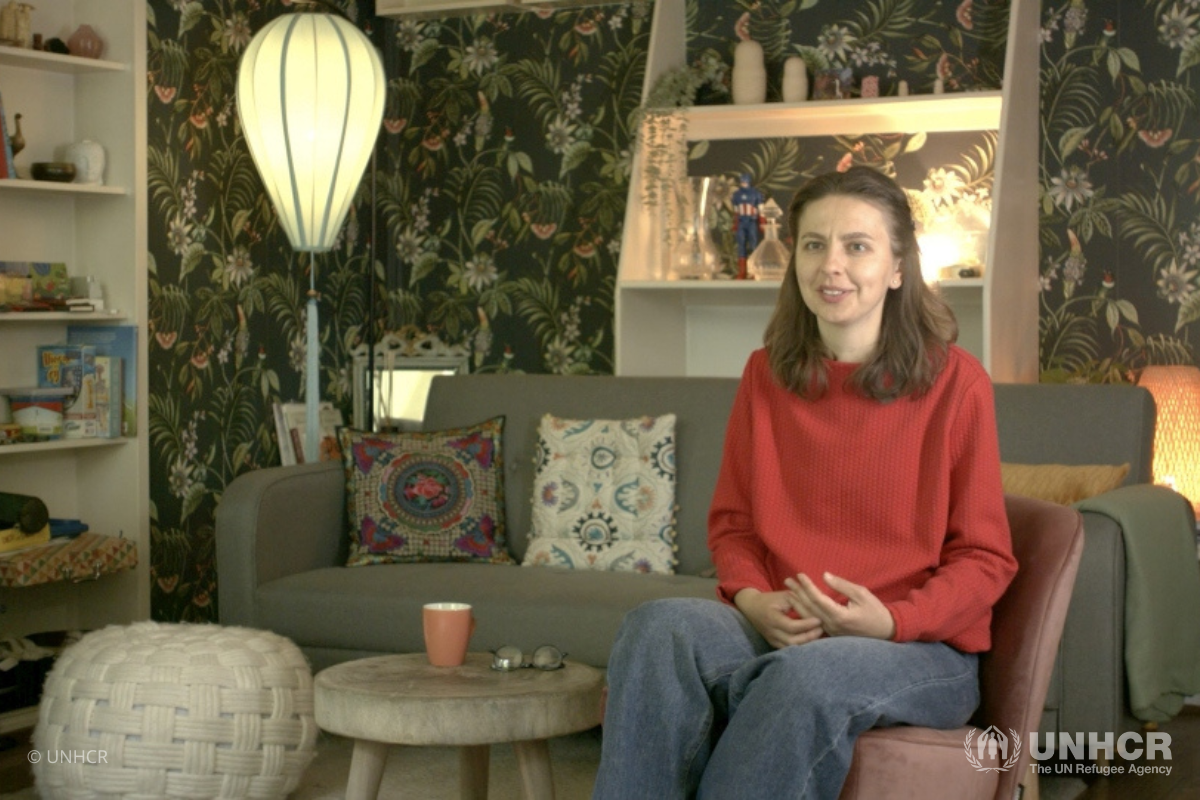
Iryna Morykvas is a Ukrainian refugee. “Before the war, I didn’t really think about security,” Iryna reflects. “I lived in a beautiful, peaceful city, painted a lot, met friends, traveled.” Her apartment had a beautiful view of the forest. “The war changed everything... In everyday life, we can rely on ourselves a lot, we can plan, make an effort. With the beginning of the war, everything changes.” She and her son decided to flee to Poland. “I was driven by fear and desire for security. I felt like a migratory bird flying to warmer lands, fleeing the winter. I took with my son only a usual briefcase and love, love for the child, the country, life, people and the world.” Later, mother and son made their way to the Netherlands. “When our family sheltered us in the Netherlands, I wanted to bring something good to the windows, because I did it at home. I cut out white birds, two white birds. I used what I had at hand – a sheet from my son’s notebook and a kitchen knife.”
Here are some hard truths: Of the more than 100 million people who have been forced into displacement, over half are women and girls; in addition to poverty and other issues that all refugees may face, women refugees have an added layer of oppression from gender discrimination. What’s more, some women refugees and internally displaced women experience sexual and gender-based violence as they flee conflict. In camps or due to poverty, some women and girls may be kidnapped, trafficked or forced into marriage. Women are often the first responders when crisis hits, yet their voices are often left out of policies that are designed to protect them. Many refugees face barriers to inclusion in local economies, which makes finding stability for their families a challenge. For women refugees, the barriers are even higher as gender discrimination closes doors or leads to lower pay.
All of this is depressing, and yet, as the women’s stories I shared above demonstrate — hard truths are not the full story. Yes, we need more women, refugees and otherwise, at decision-making tables. Yes, we need more investment in women’s wellbeing — and, we also need to tell more stories that emphasize all that women are capable of, not just all they need to overcome.
In trying to get others to care as much as we do, those of us in the nonprofit sector sometimes can over-index on emphasizing people’s suffering at the expense of centering their strength and agency. Similarly, media too often seems stuck seeing women through a “deficit frame” (i.e., underpaid, overworked, multitasking, leaning in too hard) when so many of us see ourselves and the women we know through an “assets frame” (i.e., capable of everything yet setting boundaries and finding peace as we care and exercise compassion). Credit still, after all these years, to Linda Goler Blount, MPH for helping me see the world of women through this frame.
“Rihanna phoned it in,” they say, or “Jacinda Arden is weak for stepping down.” It’s always a story of what’s missing, instead of what’s there and powerful and whole. Women refugees need us to see them, to listen to them, and to act in service of their human right to safety and home.


